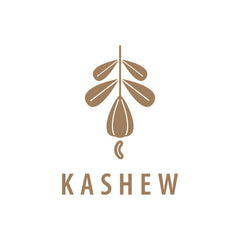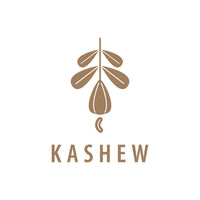Kashew Cheese and the Journey Toward Whole-Food Eating
Today, when people think of “healthy eating,” most focus only on following the right diet. But from a whole-food and holistic health perspective, true sustainable health is not just about balancing protein, carbs, and fat it’s also about:
- Origins & cultivation: Foods grown naturally, with minimal chemicals, rich in minerals and gut-friendly microbes.
- Preparation methods: Retaining nutrients, minimizing the loss of vitamins, enzymes, and the “life energy” of food.
- Seasonal balance: Pairing warm–cool, solid–liquid, and seasonal foods to help the body self-regulate.
- Mindful energy balance: Eating slowly and chewing well for better nutrient absorption and mental calm.
- Lifestyle & environment: Sleep, movement, time in nature, and social connection all influence health outcomes.
1. What Are Whole Foods?
Whole foods are those that are:
- Minimally or not industrially processed.
- Retain their natural structure, including fiber, vitamins, minerals, and bioactive compounds.
- Not stripped or replaced with additives just to extend shelf life or lower cost.
- Clearly sourced, preferably organic, and grown without pesticides or preservatives.
Example: A slice of Kashew Cheese, made from organic fermented cashews, still retains natural fats, proteins, and micronutrients. By contrast, many industrial “vegan cheeses” are mainly starches, refined oils, stabilizers, and flavor enhancers.
| Criteria | Kashew Cashew Cheese | Industrial Vegan Cheese |
|---|---|---|
| Main ingredients | Organic fermented cashews | Starches, refined oils, artificial flavors, stabilizers, preservatives |
| Processing | Handcrafted, slow fermentation to preserve nutrients | High-heat, fast processing with additives for texture |
| Protein content | 12–18g/100g, rich in amino acids & minerals | Often <5g/100g, limited amino acids |
| Fat profile | Mostly unsaturated, heart-healthy fats from cashews | Refined palm/vegetable oils, high in saturated fats |
| Cholesterol | 0 mg | 0 mg (but without whole-nut benefits; may vary by added oils) |
| Fiber & micronutrients | Contains fiber, magnesium, copper, zinc, iron | Minimal fiber; micronutrients often artificially added |
| Flavor | Naturally nutty, creamy, balanced aftertaste | Rich flavor mostly from additives |
| Health impact | Supports digestion, satiety, stable energy | Quick satiety but may spike blood sugar; less long-term benefit |
2. From Seed to Table – The Ingredient Story
All foods from vegetables to cashews and grains come from soil. But not all soils are equally nourishing. Healthy soil is nutrient-rich, microbiologically diverse, mineral-balanced, and free from chemical contamination. Healthy soil → healthy plants → nutrient-rich food → healthy bodies.
- Kashew’s organic cashews are cultivated in Ninh Thuan without chemical pesticides or synthetic fertilizers. The soil is sustainably managed, enriched with natural rainfall and microbial diversity—producing richer, creamier, and more nutritious cashews.
- Vegetables, grains, and legumes should also come from organic or regenerative farming, which restores soil, retains moisture, supports biodiversity, and lowers greenhouse gases.
- Avoid chemical farming: pesticides and synthetic fertilizers degrade soil and leave residues that can disrupt digestion, hormones, and long-term health.
3. Flavor From Nature, Not Additives
Kashew’s cashew cheeses are seasoned naturally:
- No MSG, bouillon, or refined sugar.
- Sweetness comes from roasted or fermented vegetables (pumpkin, corn, carrot, onion).
- Saltiness from natural sea salt or rock salt, still rich in trace minerals.
- Aromas from fresh herbs and spices like pepper, ginger, and basil.
4. Cooking Techniques That Preserve Nutrition
Simple methods help maximize nutrients and flavor:
- Fermentation: Cashew cheese, kimchi, pickled greens → probiotics for gut health.
- Natural pickling: Retains vitamin C & polyphenols with a tangy crunch.
- Long-aged sauces (soy, miso): Release free amino acids for natural umami.
- Light steaming or quick sautéing: Keeps vitamins, colors, and crisp textures.
- Cold-pressed oils: Extra virgin olive, sesame, peanut, avocado oils retain antioxidants and natural aroma.
5. Kashew Cheese in the Whole-Food Landscape
Kashew Cheese meets whole-food principles by keeping food as natural as possible:
- 100% plant-based, fermented organic cashews.
- No sugar, preservatives, or refined oils.
- Rich in heart-healthy unsaturated fats (oleic, linoleic) that improve cholesterol and cardiovascular health.
- Protein combined with minerals, enzymes, and probiotics for easier digestion.
| Type of cheese | Saturated fat | % of total fat |
|---|---|---|
| Kashew Cheese | 7.8–9.2 g | ~18–21% |
| Dairy Cheese (avg.) | 18–21 g | ~60–70% |
Dairy cheese has 3–4x more saturated fat, which can raise LDL cholesterol. Cashew cheese offers far less, while adding beneficial unsaturated fats.
6. Holistic Lifestyle Habits
True health links nutrition with daily practices:
- Eat at least 30 different plant foods per week for gut microbiome diversity.
- Stay naturally active: walking, gardening, stairs.
- Sleep adequately for hormone and immune balance.
- Reduce stress through mindfulness, deep breathing, or slow cooking.
- Practice mindful eating: savor textures, chew thoroughly, and relax.
7. Final Message
Kashew Cheese is not only a delicious vegan option it’s part of a holistic approach to nourishing the body, caring for the earth, and building long-term wellbeing.
A nutrient-rich meal today nourishes not just you, but also the soil, the community, and future generations.
References:
+ Satija, A. & Hu, F.B. (2018). Plant-based diets and cardiovascular health. Trends in Cardiovascular Medicine, 28(7), pp.437–441.
+ Slavin, J.L. & Lloyd, B. (2012). Health benefits of fruits and vegetables. Advances in Nutrition, 3(4), pp.506–516.
+ U.S. Department of Agriculture & U.S. Department of Health and Human Services. (2020). Dietary Guidelines for Americans, 2020–2025. 9th Edition. Washington, DC: U.S. Government Publishing Office.


Leave a comment